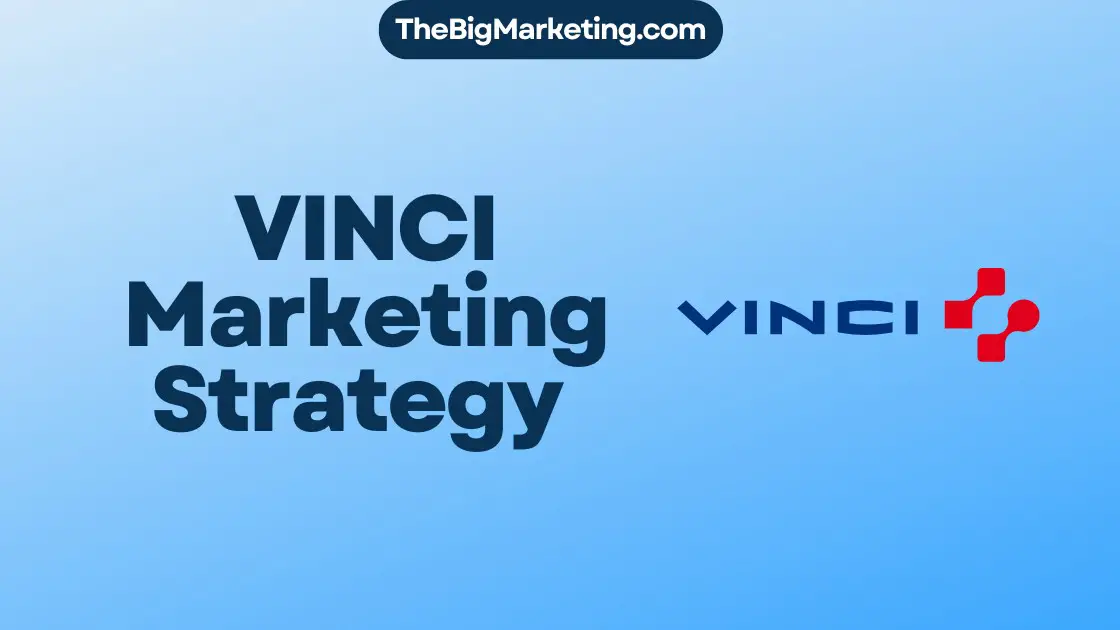Exclusivity in marketing is a powerful strategy that taps into the basic human desire for something special and exclusive. It creates a sense of unique value and desirability for a product or service among consumers. By leveraging exclusivity, businesses can increase demand, foster a heightened sense of desire, and cultivate customer loyalty.
There are different types of exclusivity in marketing that serve different purposes. Product exclusivity focuses on offering unique and limited editions, while access exclusivity involves providing limited access to products or events. Brand exclusivity positions the brand as elite and exclusive.
To achieve exclusivity, businesses can create limited editions, establish exclusive partnerships, or offer membership programs. By creating a sense of scarcity and exclusivity, businesses can generate buzz and increase the perceived value of their offerings. However, it is crucial to carefully consider the risks and rewards of exclusivity. Overexclusivity can alienate potential customers and require additional investments.
Key Takeaways:
- Exclusivity in marketing creates a sense of unique value and desirability among consumers.
- There are different types of exclusivity in marketing, including product exclusivity, access exclusivity, and brand exclusivity.
- Businesses can achieve exclusivity through limited editions, exclusive partnerships, and membership programs.
- Carefully consider the risks and rewards of exclusivity to avoid overexclusivity and alienating potential customers.
- Exclusivity can increase demand, foster customer loyalty, and generate buzz for a product or service.
Impact of Exclusivity on Consumer Behavior
Exclusivity is a powerful marketing strategy that holds the potential to significantly influence consumer behavior. By creating a sense of unique value and limited availability, exclusivity appeals to consumers’ desire for something special and exclusive. The perception of exclusivity can have a profound impact on their purchasing decisions, increasing demand and heightening desire for products or services.
When consumers encounter exclusive products or services, they often experience a sense of urgency and the fear of missing out (FOMO). This emotional response drives them to make quick purchasing decisions, fearing they may lose the opportunity to own something rare or exclusive. The allure of exclusivity taps into consumers’ desire to be part of an exclusive group or experience an elevated status.
Exclusivity not only drives increased demand but also cultivates consumer loyalty. By offering access to exclusive products or events, businesses foster a sense of exclusiveness and enhance the perceived value of their brand. Consumers develop a deeper connection with brands that provide exclusive experiences, further solidifying their loyalty.
Fostering Consumer Loyalty through Exclusivity
Implementing exclusivity as part of a marketing strategy can lead to increased consumer loyalty. Here are a few key ways exclusivity promotes loyalty:
- Perceived Special Treatment: Exclusive offers and opportunities make consumers feel valued and appreciated, reinforcing their loyalty towards a brand.
- Enhanced Brand Experience: Access to exclusive products or events provides consumers with unique and memorable experiences, strengthening their emotional connection with a brand.
- Social Proof: Consumers who affiliate themselves with exclusive brands or products gain a sense of prestige and social recognition, increasing their loyalty.
- Brand Advocacy: Loyal customers who have experienced exclusivity are more likely to recommend the brand to others, becoming brand advocates and driving word-of-mouth marketing.
By leveraging exclusivity, businesses can not only drive sales and increased demand but also foster long-term loyalty among their customer base.
| Benefits of Exclusivity on Consumer Behavior | How it Influences Consumer Behavior |
|---|---|
| Increased demand | Creates a sense of urgency and fear of missing out (FOMO), prompting quick purchasing decisions. |
| Heightened desire | Makes consumers feel part of an exclusive group, elevating their status and desirability for exclusive products or services. |
| Consumer loyalty | Provides access to exclusive products or events, fostering a deeper connection between the consumer and brand. |
Types of Exclusivity in Marketing and Their Purpose
In the world of marketing, exclusivity comes in different forms, each serving a specific purpose to attract customers and enhance a brand’s positioning. Let’s explore the various types of exclusivity and their significance in marketing strategies.
1. Product Exclusivity
Product exclusivity focuses on offering unique offerings through patents or limited production, catering to niche markets. By creating products that are one-of-a-kind or highly specialized, businesses can establish themselves as industry leaders and attract customers who value distinctiveness. This strategy allows companies to differentiate themselves from competitors and build a loyal customer base.
2. Access Exclusivity
Access exclusivity involves limiting access to particular products or events, thereby enhancing their perceived value. By creating a sense of limited availability, businesses can generate excitement and motivate consumers to act quickly. Limited access can be achieved through invitation-only events, exclusive pre-order offers, or limited-time promotions. This strategy not only drives immediate sales but also cultivates a sense of exclusivity among customers.
3. Brand Exclusivity
Brand exclusivity focuses on positioning a brand as elite, appealing to consumers seeking prestige and status. By carefully curating the brand’s image, emphasizing quality and craftsmanship, and selectively associating with high-profile events or celebrities, businesses can establish a premium brand perception. Brand exclusivity commands higher prices and attracts customers who value exclusivity and luxury.
The purpose of each type of exclusivity is to create a unique and desirable offering that resonates with consumers. By leveraging these strategies, businesses can effectively differentiate themselves in the market, attract their target audience, and establish a strong brand positioning.
Strategies to Achieve Exclusivity
Businesses can adopt various strategies to achieve exclusivity in their marketing efforts. These strategies aim to create a perception of uniqueness, desirability, and limited availability for their products or services. By implementing these strategies, businesses can differentiate themselves from competitors and attract the attention of their target audience.
Limited Editions
Creating limited editions of products or services is a popular strategy to spark consumer interest and drive exclusivity. Limited editions offer a scarce supply, making consumers perceive them as more valuable and desirable. The perception of exclusivity associated with limited editions can generate a sense of urgency among consumers, motivating them to make a purchase and ensuring that the product or service is highly sought after.
Exclusive Partnerships
Establishing exclusive partnerships with aligned brands or influencers can significantly contribute to achieving exclusivity. Collaborating with well-known brands or influential individuals can differentiate offerings and create a unique value proposition. The partnership creates a perception of exclusivity by associating the brand with desirable and exclusive elements, increasing desirability and attracting attention from the target audience.
Membership Programs
Offering membership programs with exclusive perks and access through loyalty schemes is another strategy to enhance the perception of exclusivity. By providing special benefits and privileges exclusively to members, businesses strengthen the bond between the brand and the consumer. Membership programs create a sense of belonging and make customers feel valued and important, further enhancing their loyalty and advocacy for the brand.
Overall, by implementing these exclusivity strategies, businesses can enhance the perception of uniqueness and desirability of their products or services. Whether through limited editions, exclusive partnerships, or membership programs, creating an exclusive experience for customers can foster a sense of exclusivity, driving demand and loyalty.
Understanding The Risks and Rewards
While implementing exclusivity in marketing strategies can bring significant benefits to businesses, it is essential to carefully evaluate the associated risks and rewards. By understanding both aspects, companies can make informed decisions and leverage exclusivity effectively to drive brand perception, customer demand, and loyalty.
Rewards of Exclusivity
A successful implementation of exclusivity can have a positive impact on various key factors:
- Improved Brand Perception: Exclusivity creates a perception of high value and uniqueness, positioning the brand as exclusive and desirable.
- Increased Demand: The limited availability of exclusive products or services can generate heightened consumer interest and drive demand.
- Customer Loyalty: By offering exclusive benefits and experiences, businesses can strengthen their relationship with customers, fostering loyalty and advocacy.
Risks and Challenges
Implementing exclusivity also presents certain risks and challenges that businesses must consider:
- Missed Sales Opportunities: If exclusivity is taken to an extreme, potential customers who feel excluded may choose alternative options, resulting in missed sales opportunities.
- Overexclusivity: Overusing exclusivity or making it inaccessible to a broader audience can hinder market reach and limit growth potential.
- Additional Investment: Achieving exclusivity may require additional investments in production, marketing, and partnerships. These costs should be carefully evaluated against potential benefits.
By balancing the rewards with the potential risks and rewards, businesses can make informed decisions and implement exclusivity strategies that align with their objectives.
Exclusivity in Marketing Campaigns; How It All Works
Exclusivity in marketing campaigns utilizes the power of scarcity to attract prospects and create a sense of exclusiveness, desirability, and prestige. By leveraging the Fear of Missing Out (FOMO) phenomenon, exclusivity maximization taps into core emotions and increases the longing for a product or brand. This strategic marketing tactic revolves around the idea that limited availability increases perceived value, making prospects believe they will miss out on an intriguing opportunity.
To achieve exclusivity in marketing campaigns, businesses employ various techniques such as offering exclusive discounts, creating membership programs with exclusive perks, or introducing limited-time offers. These approaches reinforce the perception of exclusivity and scarcity, enticing consumers to take immediate action and make a purchase.
The implementation of exclusivity in marketing campaigns can have a significant impact on consumer behavior. By creating a sense of urgency and fostering a Fear of Missing Out, exclusivity drives consumers to make quick and emotional purchasing decisions. This strategy appeals to their desire for something special and unique, enhancing the perceived value of a product or service.
Furthermore, exclusivity in marketing campaigns helps differentiate brands in a crowded marketplace. It builds anticipation, stirs excitement, and generates buzz, all of which contribute to word-of-mouth marketing. In addition, exclusivity allows businesses to target specific audiences, attract higher-end customers, and create a distinct market position.
The Key Elements of Exclusivity in Marketing Campaigns
When implementing exclusivity in marketing campaigns, there are several key elements to consider:
- Scarcity: Emphasize the limited availability of the product or offer to increase its desirability.
- Perceived Value: Highlight the exclusiveness and prestige associated with the product or brand to enhance its perceived value.
- Emotional Appeal: Evoke core emotions such as excitement, anticipation, and longing to create a sense of desirability.
- Clear Communication: Clearly communicate the unique benefits and value proposition of the exclusive offer to potential customers.
Benefits of Exclusivity in Marketing Campaigns
Implementing exclusivity in marketing campaigns offers several benefits:
- Increased sales through a sense of urgency and heightened perceived value.
- Creation of buzz and excitement, resulting in word-of-mouth marketing.
- Anticipation and elevated brand desirability.
- Targeting of specific audiences who value exclusivity.
- Creating a sense of urgency, prompting quick actions.
- Pre-qualifying the audience by attracting customers who appreciate exclusive offers.
- Enhancing the perceived value of a product or service.
To summarize, exclusivity in marketing campaigns effectively leverages scarcity and core emotions to increase consumer desire and drive sales. By creating a sense of exclusiveness, businesses can differentiate their brand, attract specific target audiences, and increase the perceived value of their products or services.
Why Should You Include Exclusivity in Marketing Your Product/Service?
When it comes to marketing your product or service, incorporating exclusivity can yield numerous benefits. By offering exclusive experiences and opportunities, you can create a sense of belonging and importance for your customers. This not only strengthens their connection to your brand but also boosts their confidence and perception of higher value.
Exclusivity sets your brand apart from competitors and differentiates it in the market. It gives your target audience a reason to choose your offerings over others, making them feel like part of a higher economic class or elite group. This sense of exclusivity appeals to their desire for something special and unique, driving their desire to engage with your brand.
By positioning your product/service as exclusive, you can also differentiate it from similar offerings in the market. This helps you capture the attention of your target audience and stand out in a crowded marketplace. The perception of exclusive value enhances the desirability of your brand, encouraging customers to choose your products or services over alternatives.
To summarize, incorporating exclusivity in your marketing strategies provides a range of benefits, including a sense of belonging and importance for customers, differentiation in the market, enhanced perceived value, and increased customer engagement and loyalty.
| Benefits of Exclusivity in Marketing |
|---|
| 1. Sense of Belonging and Importance |
| 2. Differentiation in the Market |
| 3. Enhanced Perceived Value |
| 4. Increased Customer Engagement and Loyalty |
Here’s How You Can Implement This Concept
Implementing the concept of exclusivity in your marketing strategy requires careful planning and execution. Follow these implementation tips to create a successful exclusivity campaign:
- Clear Value Communication: Clearly communicate the unique value and benefits that your product or service offers. Highlight what sets you apart from competitors and why customers should choose your brand.
- Unique Offer: Create an offer or promotion that stands out from the crowd. It could be a limited edition product variant, an exclusive package, or a special bundle that is only available to a select few.
- Deadline Setting: Set a deadline for your exclusive offer to create a sense of urgency and exclusivity. This encourages customers to take immediate action and not miss out on the opportunity.
- Waiting List Creation: Generate anticipation and excitement by creating a waiting list for your exclusive offer. This makes people feel privileged to be part of a select group and increases the perceived value of the offer.
- Portrayal of Scarcity: Emphasize the limited availability of your exclusive offer. Highlight the scarcity of the product or service to create a sense of urgency and make people feel like they are among the fortunate few who can access it.
- Qualifying Customers: Consider qualifying customers to ensure that your exclusive offer is targeted to the right audience. This can involve criteria such as previous purchase history, loyalty program membership, or specific demographics.
By implementing these strategies, you can create a successful exclusivity campaign that captures the attention of your target audience and drives engagement with your brand.
The Principle of Exclusivity in Marketing
The principle of exclusivity is rooted in the allure of the unknown and the desire for the unattainable. It recognizes that people are naturally drawn to things that are exclusive, limited, and not easily accessible to everyone. This principle taps into our innate sense of exclusiveness and mystery, creating a sense of prestige and desirability.
Take, for example, our attraction to exclusive groups, clubs, and memberships. Being part of a select few who have access to certain privileges or experiences gives us a sense of exclusiveness and belonging. We feel special and elevated by our association with something that not everyone can be a part of.
Now, imagine implementing this principle in your marketing strategy. By leveraging exclusivity, you can evoke a sense of desirability and prestige in your target audience. You can make them feel like they are part of something special, something that not everyone can access.
The principle of exclusivity works because it taps into our psychological need to feel special and part of an elite group. It creates a sense of exclusiveness and mystery, making people desire what they perceive as unattainable. The allure of the unknown and the desire for something exclusive drives customer engagement and elevates the perceived value of your product or service.
By positioning your brand as exclusive and limited, you can create a sense of exclusivity and prestige around your products or services. This can significantly impact consumer behavior, driving increased demand and customer loyalty.
To further illustrate the principle of exclusivity in marketing, consider the following table:
| Benefits of Exclusivity in Marketing | Examples |
|---|---|
| Increased sense of exclusiveness and prestige | A high-end luxury brand offering limited edition products |
| Elevated perceived value | An invitation-only membership program with exclusive benefits |
| Heightened customer desire and attraction | A limited-time offer for a highly sought-after product |
| Loyalty and repeat business | An exclusive loyalty program with personalized rewards |
As you can see, the principle of exclusivity in marketing offers numerous benefits, ranging from increased exclusiveness and prestige to heightened customer desire and loyalty. By implementing this principle in your marketing strategy, you can create a compelling sense of exclusivity, allure, and desire, making your brand and offerings stand out in a crowded marketplace.
Benefits of Using the Principle of Exclusivity in Marketing Campaigns
Implementing the principle of exclusivity in marketing campaigns offers a multitude of benefits that can greatly impact the success of a brand. Here are some key advantages:
Increase in Sales
The use of exclusivity can create a sense of urgency and scarcity around a product or service, leading to increased sales. By limiting access and creating a perception of high demand, consumers are more likely to make quick purchasing decisions, resulting in higher sales figures.
Buzz and Excitement
Exclusivity generates buzz and excitement among consumers. When a brand offers exclusive products or experiences, customers feel a sense of anticipation and desire, leading to positive word-of-mouth marketing. This buzz creates a sense of exclusivity and allure around the brand, attracting even more attention and potential customers.
Target Specific Audiences
Exclusivity allows brands to target specific audiences effectively. By offering exclusive products or services tailored to a particular segment, brands can capture the interest and loyalty of their desired customer base. This targeted approach ensures that marketing efforts are focused and yield higher engagement and conversion rates.
Create a Sense of Urgency
The principle of exclusivity creates a sense of urgency and fear of missing out (FOMO) among consumers. Limited-time offers or exclusive deals with a set deadline prompt customers to take immediate action, resulting in higher conversion rates. This sense of urgency compels customers to make a purchase before the opportunity disappears.
Pre-Qualify the Audience
Exclusivity helps pre-qualify the audience by attracting customers who value and appreciate exclusive offerings. This ensures that the brand attracts loyal customers who are willing to invest in the exclusive products or services offered. By qualifying the audience, brands can build long-term relationships and increase customer loyalty.
Increase Perceived Value
Exclusivity increases the perceived value of a product or service. By positioning the brand as elite and offering exclusive benefits, consumers assign a higher value to the offerings. This perception of exclusivity and added value further encourages customers to make a purchase and become loyal brand advocates.
By leveraging the benefits of exclusivity in marketing campaigns, brands can experience increased sales, generate buzz and excitement, target specific audiences, create a sense of urgency, pre-qualify the audience, and increase the perceived value of their products or services.
Conclusion
Exclusivity is a powerful tool in marketing that creates a sense of uniqueness, desirability, and prestige for a product or service. By leveraging exclusivity, businesses can drive sales, build customer loyalty, and generate buzz. However, it is important to implement exclusivity strategies carefully, considering the risks and rewards.
When implementing exclusivity, clear value communication, unique offers, and deadlines are essential. Creating waiting lists and portraying scarcity can also enhance the perceived value of the offering. Additionally, targeting specific audiences allows businesses to maximize the impact of exclusivity.
It is crucial to strike a balance in implementing exclusivity. Overexclusivity can push away potential customers, while underexclusivity may fail to generate the desired appeal. By harnessing the power of exclusivity, businesses can elevate their brand perception, drive consumer desire, and stand out in the competitive market.






